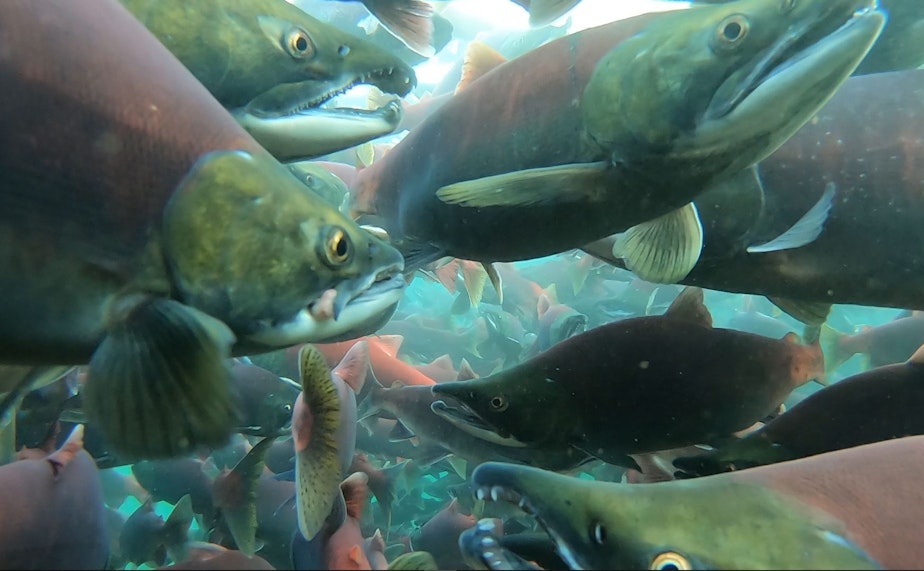Pebble Mine vetoed after long fight by Sen. Cantwell and fishermen

Environmental activists, tribal communities, and fishermen are celebrating a massive conservation decision: the EPA's rejection Monday of the Pebble Mine.
The proposed copper and gold mine on Bristol Bay, Alaska, has been a topic of federal debate for nearly 15 years.
The bay is known as the holy grail for salmon because of the massive size of the salmon run, and rare lack of human development.
The EPA used a rare power to reject the project: a veto-authority under the Clean Water Act. The agency has used this specific authority only 14 times in history.
The agency cited the potential damage a mining operation and its adjacent activities could cause to 8.5 miles of streams used by salmon, among other reasons for the veto.
U.S. Sen. Maria Cantwell, a Washington Democrat, took to the Senate floor as soon as she could Tuesday to sing the praises of Bristol Bay and celebrate the veto of Pebble Mine.
"Fisherman know that the Pacific Northwest salmon is worth more than copper, and today salmon is even worth more than gold," Cantwell said, relief in her voice.
"It is our Pacific way of life, and thanks to this administration it will be protected."
RELATED: Copper versus salmon: Why an Alaska mine matters in the Northwest
Bristol Bay supports 5,000 fishery jobs in Washington state. Fishing crews, processors, and support staff that work in the bay each year hail from Seattle, Bellingham, and throughout the Puget Sound area. Cantwell's office estimates it generates $500 million annually for Washington state.
RELATED: Alaskan mega-mine gets 2nd chance. Fishing industry gets angry
Cantwell was the first U.S. senator to object when Pebble Mine was first proposed, and has made it one of her core issues since. She says Bristol Bay salmon are "economic lynchpins" for commercial fishermen.
"A multi-national corporation thought that it could go to one of the most iconic salmon runs on the planet and decimate those jobs that we rely on in Bristol Bay, and tear a hole in culture of our Northwest fabric," Cantwell said. "Fisherman, and we here, said no."
Members of the state's fishing industry, tribal leaders, and conservation groups have railed against the Pebble Mine plan. Opposition has never ceased in the two decades its been under review, ranging from anti-Pebble Mine bumper stickers to organized events against it.
The mining company, Pebble Limited Partnership, calls the veto political and unlawful, and has said it could bring litigation. The corporation has had the support of companies that rely on copper and gold, including jewelry makers, to build Pebble Mine.
The valuable minerals under the bay have been valued between $300 billion and $500 billion.
The EPA says Bristol Bay currently supports a $2 billion commercial fishing industry, along wish pristine habitat for marine life and traditional fisheries for Alaska Natives.
Bristol Bay and its rivers remain one of the last places on earth where wild salmon run free, without interference by urban or industrial development such as mines, dams and irrigation equipment. Washington state's runs, for example, are challenged by development, direct pollution and over-fishing.
Pebble Limited Partnership has argued that impacts on existing habitat would be small, and that they would "be offset by other habitat improvements in the area."
The Biden administration's EPA, in its final determination, disagreed.




